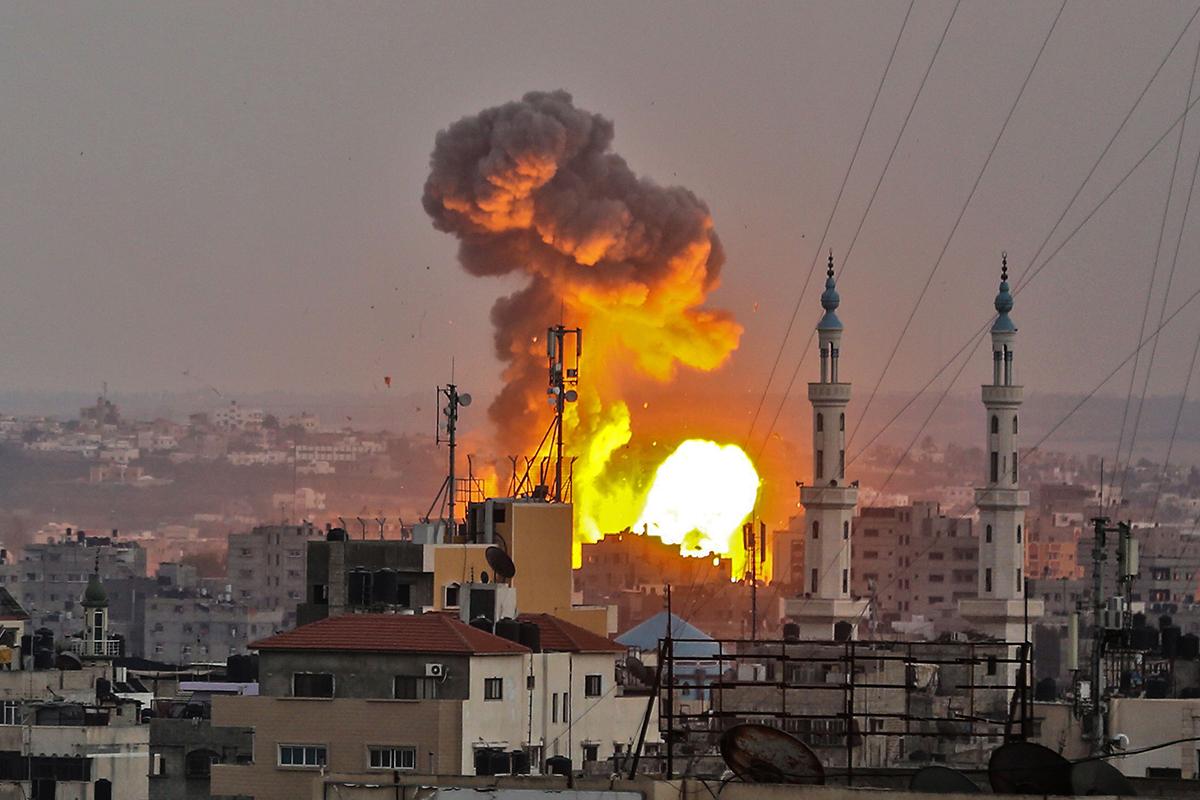‘Record wave’ of antisemitic incidents in Britain during Israel-Gaza conflict, monitor says
Hatred ‘directed against everyone from schoolchildren to rabbis’

A “record wave” of antisemitic incidents were sparked by the Israel-Gaza conflict, a monitoring group has said.
They included people targeting “random Jewish people”, including school children, with abuse and graffiti on synagogues.
A report said that “violent rhetoric and extremist incitement” was seen online and from a small minority of protesters at some pro-Palestinian demonstrations.
The Community Security Trust (CST) recorded 628 antisemitic hate incidents between 8 May and 7 June, the highest number ever recorded in a month.
Chief executive Mark Gardner said: “This anti-Jewish rage was fuelledby extremists and directed against everyone from schoolchildren to rabbis, coming as violence and intimidation in schools, streets and shopping centres.
“We need firmer action against the perpetrators, and an end to the selective anti-racism from thosewho passionately oppose most racism but uniquely ignore, misrepresent or make excuses for this type of anti-Jewish hate.”
In the same period, Islamophobia reporting group Tell Mama recorded a rise in reports of anti-Muslim hatred.
Incidents dealt with by the police include an attack on Rabbi Rafi Goodwin near his synagogue in north London..
Separately, four men were arrested after passengers in a convoy of cars covered with Palestinian flags were heard to use offensive language and make threats against Jewish people in London.
The CST said 585 out of the 628 antisemitic incidents recorded involved language, imagery or behaviour linked to the Israel-Gaza conflict.
Its counted 112 examples of individuals targeting random Jewish people or Jewish neighbourhoods with shouts of “free Palestine”, Palestinian flags or both.
The CST said it did not treat the phrases “free Palestine” or “free Gaza” as antisemitic unless were used to specifically target Jewish people, and that some incidents also included abusive or threatening language.
Around 150 incidents were related to schools and universities, with the most common type seeing Jewish students or teachers “singled out and targeted”. Death threats were sent to Jewish students in two incidents.
The CST recorded a small number of incidents at pro-Palestinian demonstrations, including speakers invoking antisemitic conspiracy theories and calling Jews “impure people”, and placards comparing Israel to Nazi Germany.
The report said: “Most pro-Palestinian campaigning in the UK falls within legitimate political activism and is not the subject of this new report. However, several pro-Palestinian demonstrations across Britain included antisemitic placards, chantsand speeches from a minority of participants. Some of these appeared to be illegal while others used extreme political or religious language.”
The conflict began on 10 May after weeks of rising Israeli-Palestinian tension in East Jerusalem that culminated in clashes at al-Aqsa.
Hamas began firing rockets after warning Israel to withdraw from the site, triggering retaliatory air strikes.
According to United Nations figures for the 11-day conflict, 256 Palestinians including 66 children were killed in Gaza.
In the West Bank, 26 Palestinians were killed and in Israel, 13 people were killed, including two children.



